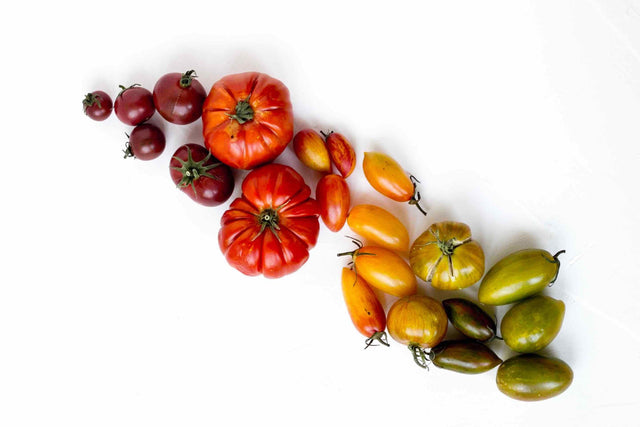
From Farm to Table: Why Eating Seasonal Produce Matters
Eating seasonal produce is a great way to enjoy fresh, nutritious food while supporting local farmers. As the seasons change, so do the crops that are available to us. Eating produce that is in season has many benefits for our health and well-being.

Nutritional Benefits of Eating Seasonal Produce
Seasonal produce is harvested at its peak, which means it tends to be more nutrient-dense than produce that is harvested out of season. When produce is grown out of season, it is often grown in artificial or hydroponic conditions. This can affect nutrient content. Seasonal produce, on the other hand, is grown more naturally and is packed with vitamins, minerals, and antioxidants.
Eating seasonal produce can also help to support the body’s natural cleansing processes. In the winter, our bodies require more warming foods like root vegetables, which can help to support the immune system and keep us healthy. In the summer, we require more cooling foods like fruits and leafy greens to help us stay hydrated and cool.

Negative impacts of eating out of season produce
Eating seasonal produce not only benefits your health but also has a positive impact on the environment. By eating produce that is grown locally and in-season, you support local farmers and reduce the carbon footprint associated with the transportation of imported produce. But what are the negative impacts of eating produce that is out of season, and why should you try to avoid it?
Firstly, produce that is out of season is often imported from other countries where it is in season. This means it has to travel long distances to reach your plate, resulting in increased food miles and carbon emissions from transportation. The big supermarkets often import garlic from Mexico, oranges from the US and asparagus from Peru. The longer the distance that the produce has to travel, the higher the environmental impact, and the greater the likelihood that the produce will spoil or be damaged during transit.
Secondly, produce that is grown out of season often requires additional resources to grow, such as artificial lighting and heating. This results in a higher energy cost and carbon footprint associated with its production. For example, growing tomatoes out of season in a greenhouse requires the use of artificial light and heating, resulting in a higher environmental impact.
Seasonal Produce at Farmers Pick
We believe moving with the seasons is critical to creating a more sustainable food system, and delivering the freshest, most tasty produce available.
Coming into winter, it is an exciting time as the seasons are moving and what is available is changing weekly.
Some things you might see in your box in the coming month:
- Apples
- Bananas
- Lemons
- Limes
- Mandarins
- Oranges (Navel and Valencia)
- Pears (Packham and Bosc)
- Persimmons
- Pomegranate
- Rhubarb
- Asian Greens (Bok Choy, Choy Sum, and Gai Lan)
- Beetroot
- Broccoli
- Brussels Sprouts
- Cabbage
- Carrots
- Cauliflower
- Celeriac
- Celery
- Fennel
- Garlic
- Kale
- Leeks
- Mushrooms
- Onions
- Parsnips
- Potatoes
- Pumpkin
- Spinach
- Sweet Potatoes
- Turnips
By eating seasonal produce, you can enjoy a variety of fresh, nutritious foods that are packed with vitamins, minerals, and antioxidants. Seasonal eating can also help to support the body’s natural cleansing processes and keep us healthy throughout the year.
At Farmers Pick, we are committed to bringing you the best seasonal produce that is grown locally and sustainably.

